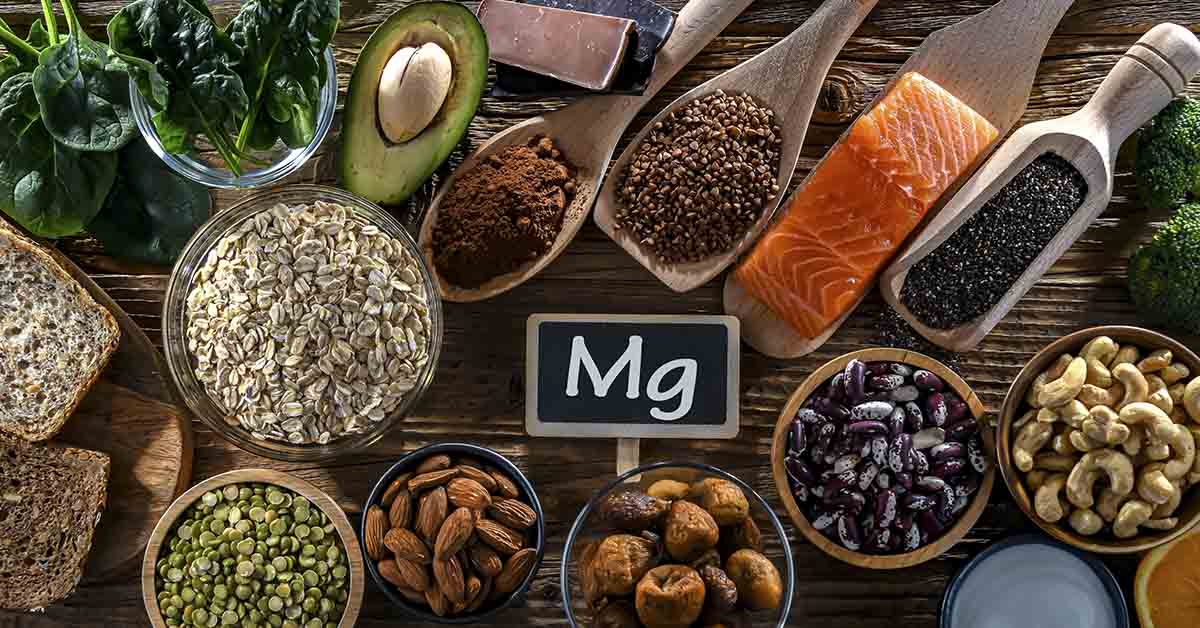Often, when it comes to essential nutrients for our health, the focus tends to be on vitamins. While yes, vitamins are critical, minerals are equally important. Anyone who has ever had a mineral deficiency can tell you, they really wreak havoc on your wellbeing. Minerals are crucial nutrients that our bodies need to function properly. Each mineral has specific roles, and deficiencies can lead to various health problems. Understanding this better and what foods you need in order to maintain a healthy mineral status is key.
Understanding Minerals and Mineral Deficiency
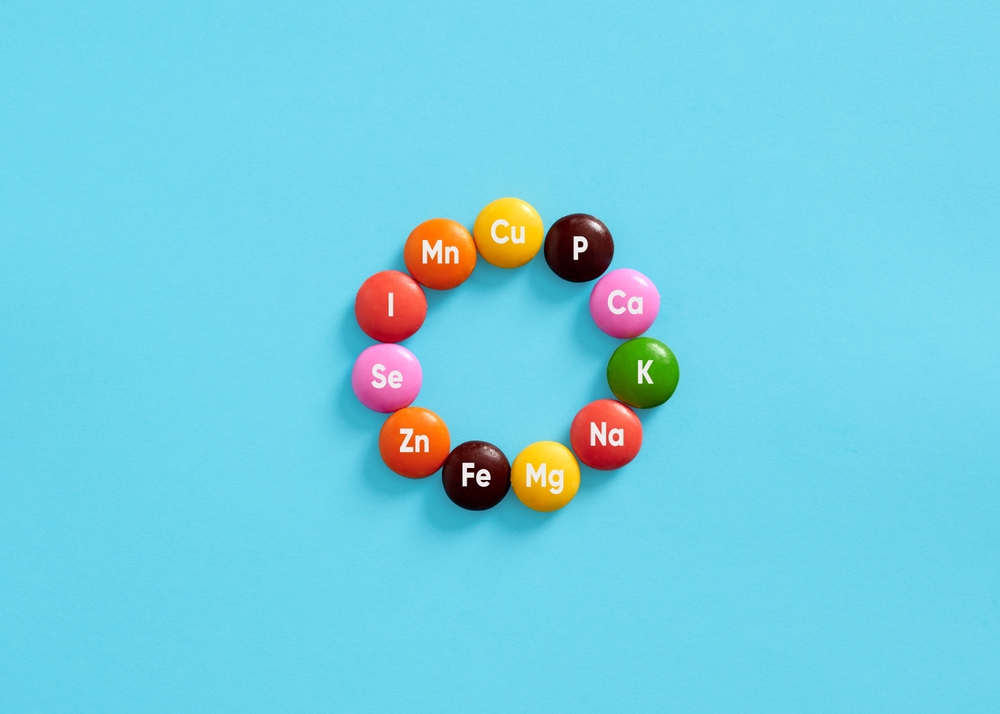
Just like vitamins, without minerals, our bodies can’t function properly. We need them to transport red blood cells, to contract muscles, and every single other function, big or small, that occurs in our bodies. The following 14 minerals are essential, so it is important to understand what they do, their signs of deficiency, and what foods they are found in so that you can maintain a healthy, mineral-rich and balanced diet.
1. Chromium
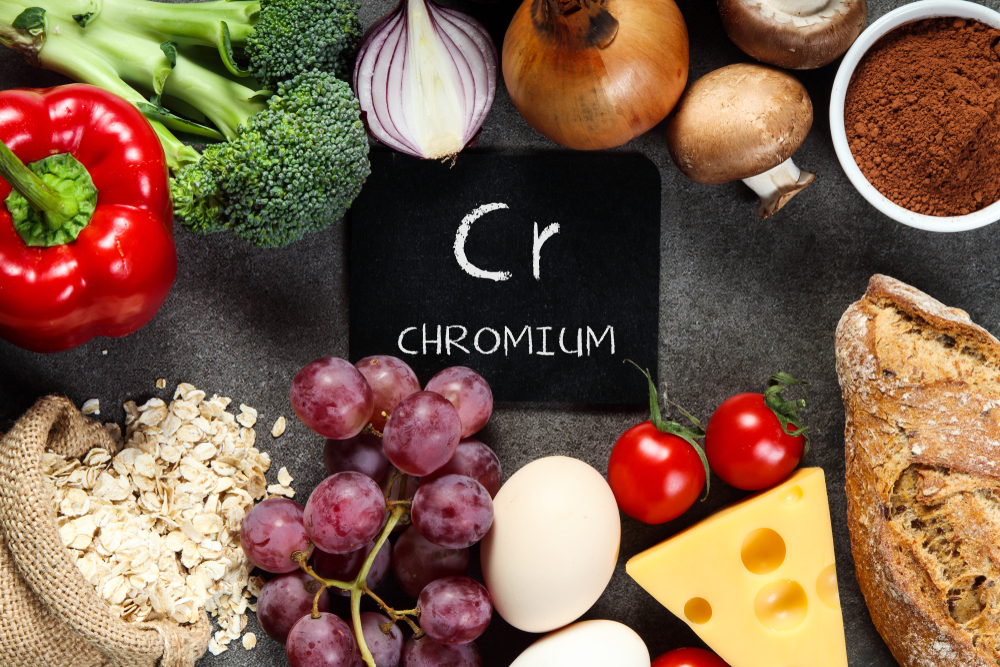
Chromium is an important mineral that helps in the metabolism of carbohydrates, fats, and proteins by enhancing insulin action. Without enough of this mineral, you will have impaired insulin function. This could increase your risk of developing type 2 diabetes and cardiovascular issues. Signs of chromium deficiency include most symptoms that are similar to diabetes, including impaired glucose tolerance and elevated blood sugar levels. Foo sources of chromium include:
- Broccoli
- grape juice
- whole grains
- green beans
- potatoes
- lean meats
2. Manganese
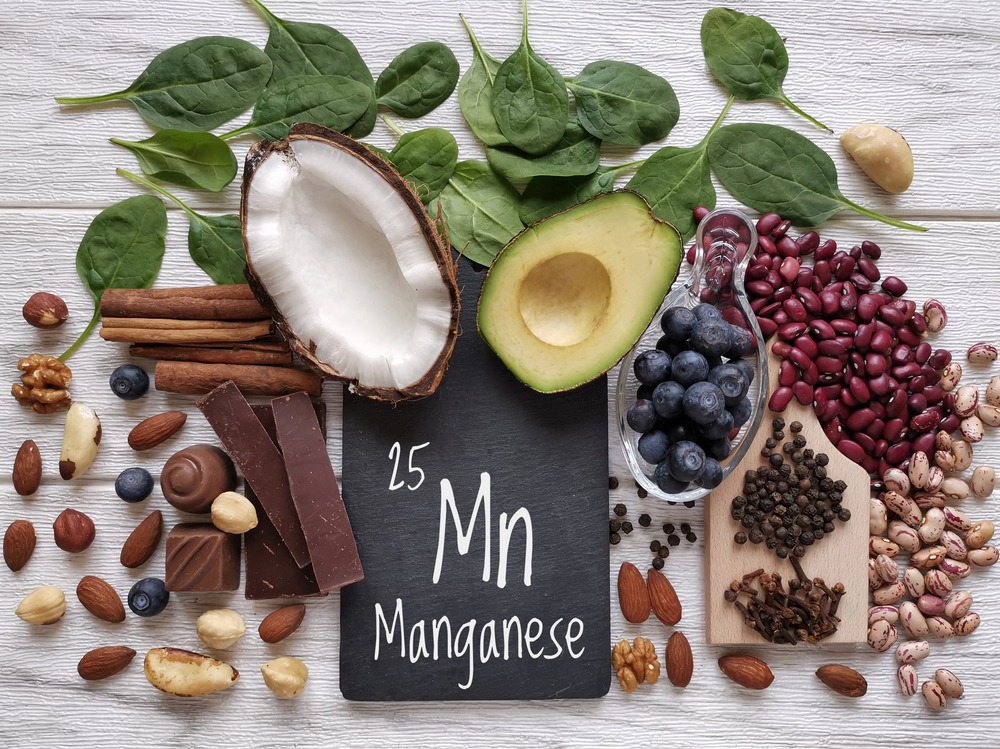
Manganese is essential for bone formation, blood clotting, and antioxidant functions. Deficiency is rare in humans as, luckily, this mineral is available in many foods. That being said, a deficiency can lead to poor bone growth, impaired glucose tolerance, skin rashes, and altered lipid metabolism. In children, it may cause skeletal defects and slowed growth. Women may experience more painful periods, while men are more likely to experience rashes and loss of hair color. Foods that are high in manganese include:
- Nuts
- legumes
- whole grains
- leafy green vegetables
- tea
3. Fluoride

Fluoride is one of the primary minerals for the development and maintenance of strong bones and teeth. Signs of fluoride deficiency include more frequent cavities and tooth decay, as well as weaker bones. It can also lead to serious conditions, such as Osteoporosis. Fluoride deficiency can increase your risk of fractures as well as gum problems, as bacteria thrive in the presence of tooth decay, which can lead to infection and inflammation. Foods that are high in fluoride include:
- Fluoridated water
- tea
- seafood
- some dental products.
4. Sodium Chloride (Sodium and Chloride)
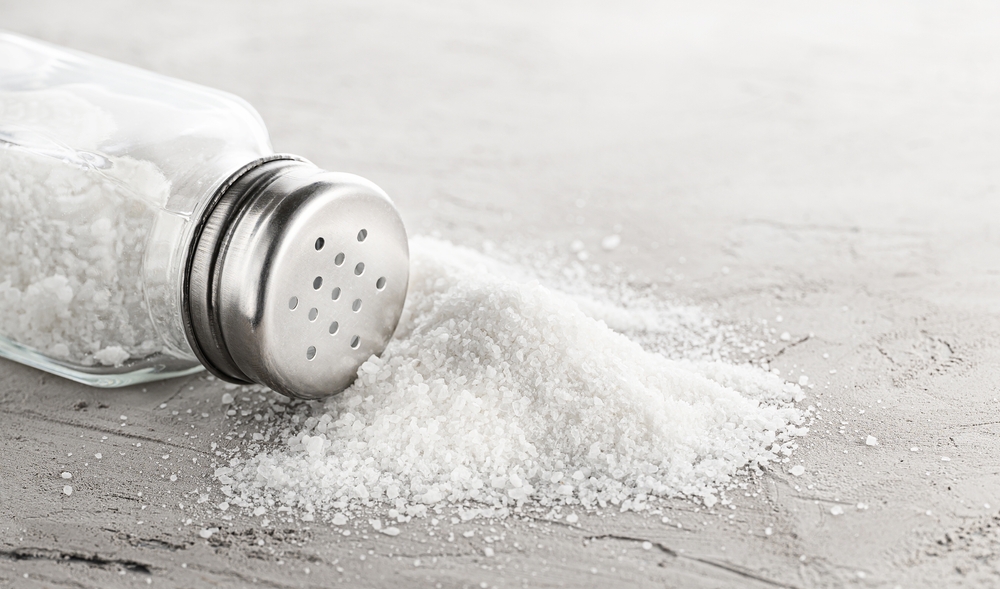
This is a two-for-one: Sodium and chloride, when together, make sodium chloride. This formidable combo is important for maintaining fluid balance, nerve transmission, and muscle function. A severe deficiency is known as hyponatremia, which can lead to a range of health problems. The symptoms can be mild, such as headaches, fatigue, muscle cramps, nausea, and dizziness, but they can also be severe. Hyponutremia can lead to seizures, coma, and even death. When doing endurance activities, especially in the heat, it is essential to not only drink water, but also be sure you are consuming salt and other electrolytes. While most of us need to be mindful not to consume too much sodium, endurance athletes must make sure they are consuming enough for how much they are sweating. Sources of these include:
- Table salt
- processed foods
- soy sauce
- canned soups
- salted nuts.
5. Potassium
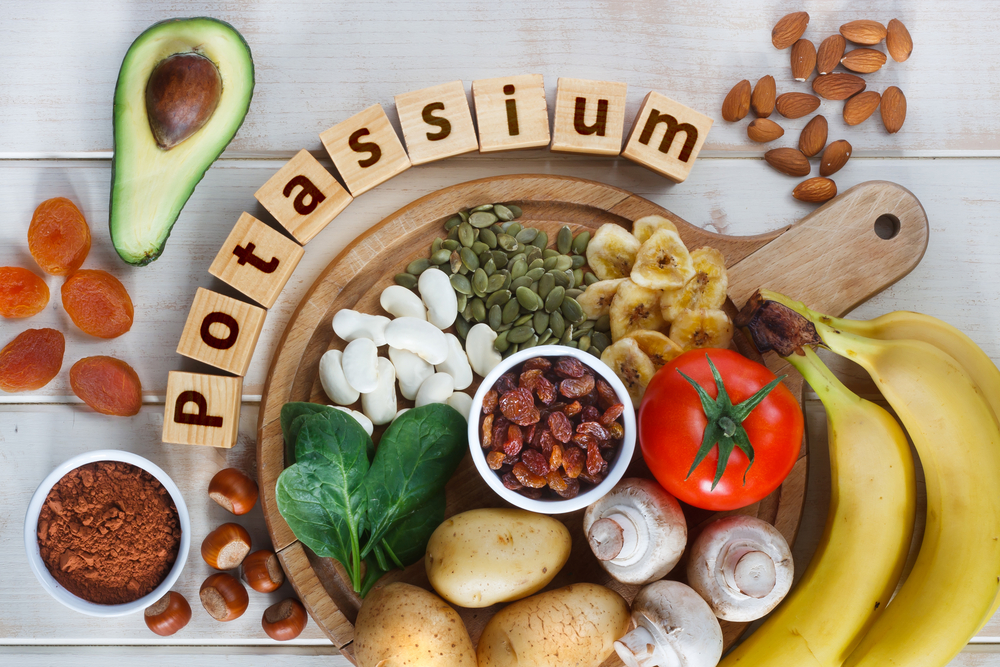
Potassium is an important mineral and electrolyte which plays an important role in balancing sodium chloride. Potassium regulates fluid balance, muscle contractions, and nerve signals. A mild deficiency in potassium may cause you to feel weakness, fatigue, have muscle cramps, and even become constipated. A more severe deficiency, known as hypokalemia, can cause abnormal heart rhythms, muscle paralysis, and even respiratory failure. Food sources of potassium include:
- Bananas
- oranges
- potatoes
- spinach
- beans
- tomatoes.
6. Iodine
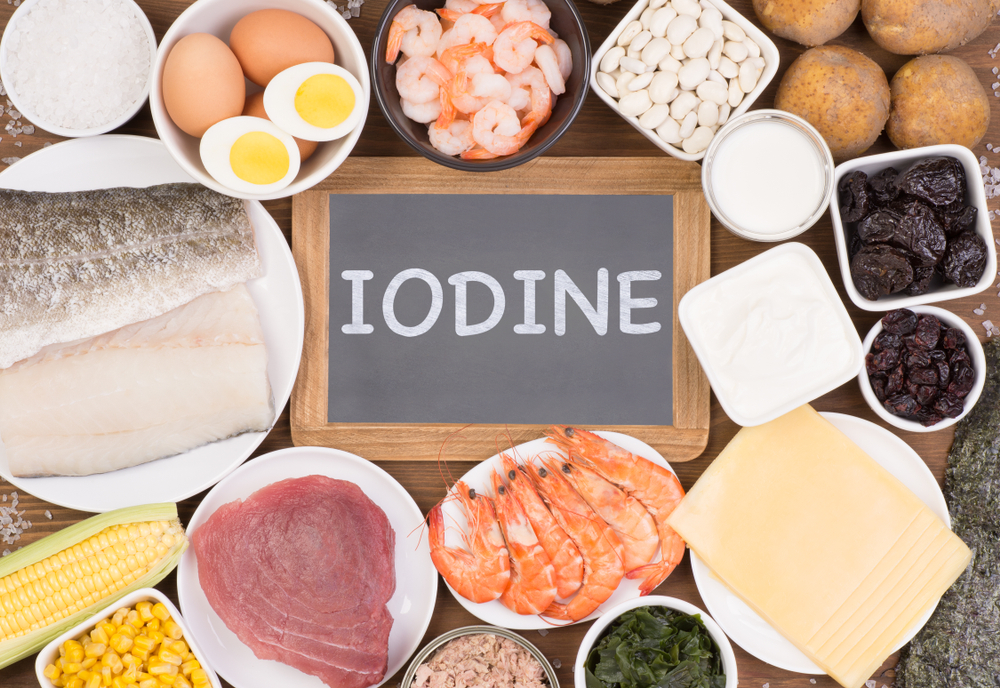
Iodine is an important mineral for many reasons. It is critical for thyroid hormone production, which regulates metabolism. It is also an important nutrient for brain function. Deficiency can have a negative impact on the thyroid gland and brain development. The most visible sign of iodine deficiency is called Goiter, which is an enlarged thyroid gland in the neck. It will look like a large (or even giant) lump. Other signs include hypothyroidism (low thyroid hormone production), fatigue, weight gain, and slowed reflexes. During pregnancy and early childhood, it can cause developmental delays and intellectual disabilities in children. Food sources include:
- Iodized salt (Most table salt)
- seafood
- dairy products
- seaweed
7. Magnesium
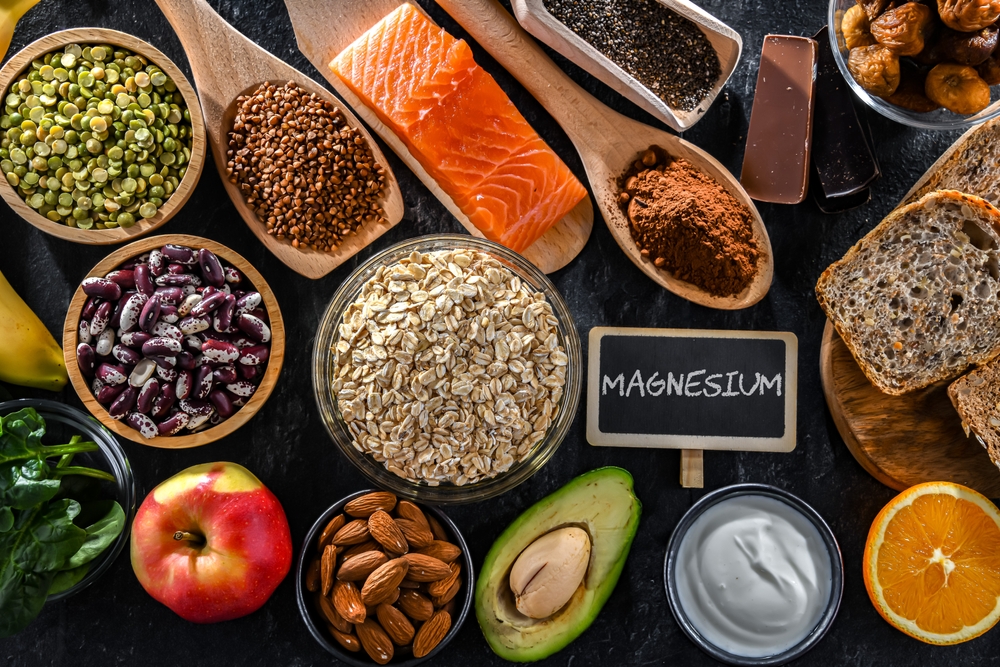
More and more research is coming about showing how important magnesium is for our health. This mineral supports muscle and nerve function, blood glucose control, and bone health. It can help you relax and sleep at night, help you stay regular in the bathroom, help you recover faster from workouts – the list goes on. Signs of deficiency include muscle cramps and muscle weakness, fatigue, constipation, headaches, nausea, irregular heartbeat and heart spasms, mental disorders, osteoporosis and bone pain, high blood pressure, loss of appetite, tremors, sleep disorders, menstrual cramps and PMS, heart disease, and type 2 diabetes. Clearly, this is an incredibly important mineral. Food sources of magnesium include:
- Nuts
- seeds
- whole grains
- green leafy vegetables
- legumes
8. Calcium
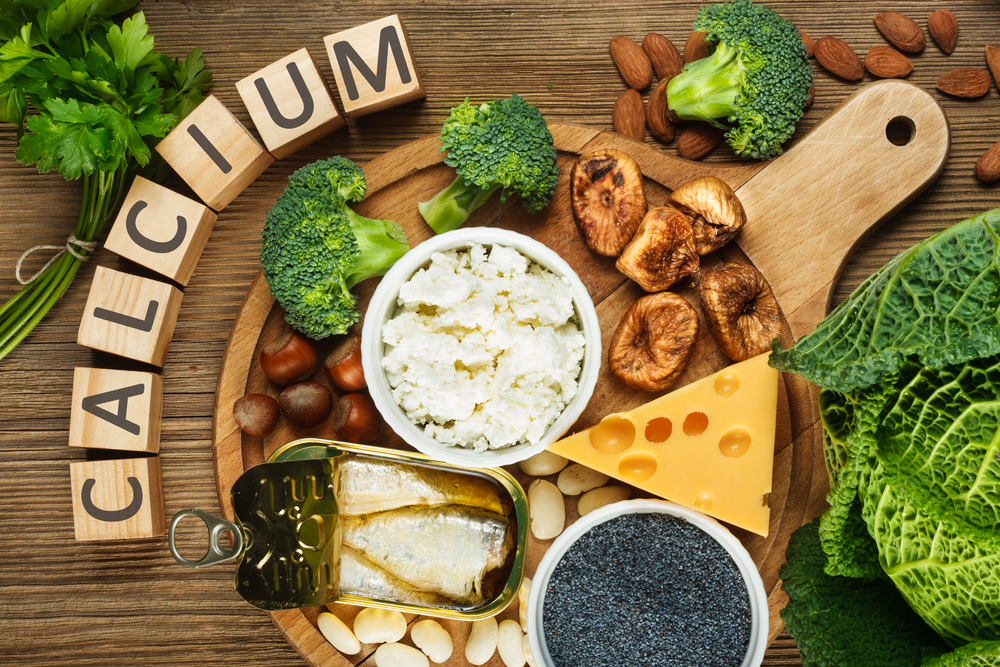
Most of us grew up with the Drink milk, love life commercials impressing on us the importance of drinking milk for healthy bones and teeth. This is because calcium is an essential mineral for bone and teeth health. It is also critical for muscle function and nerve signaling. Calcium deficiency, called hypocalcemia, can lead to a wide range of symptoms and health problems. These include muscle cramps and spasms, numbness and tingling, dry skin and brittle nails, and fatigue and weakness. More severe deficiencies can lead to cognitive impairment, as well as dental and bone problems, such as osteoporosis. This is because if you aren’t getting enough calcium, your body will steal it from your bones. Calcium deficiency can even lead to seizures, heart problems, hallucinations, difficulty swallowing, and an increased risk of fractures. Foods that are high in calcium include:
- Dairy products
- fortified plant-based milk
- broccoli
- kale
- sardines
9. Zinc
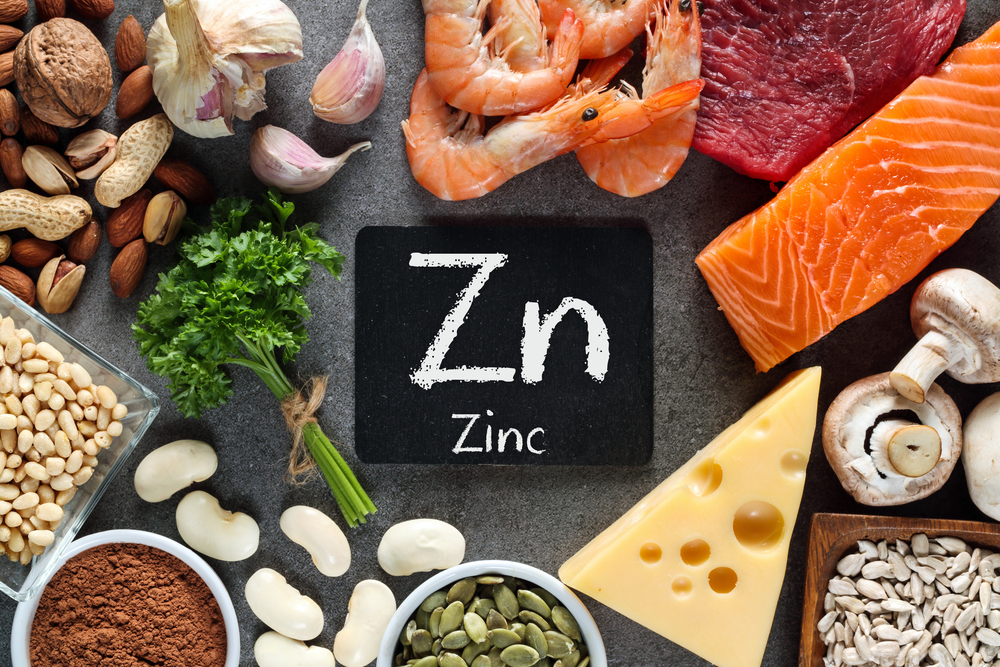
If you’ve ever been that person who gets more colds a year than you can count, someone has perhaps mentioned to you to consider your zinc intake. This is because zinc is an important mineral for immune function, as well as wound healing, DNA synthesis, and cell division. A deficiency can result in delayed growth in children, hair loss, problems with wound healing, impaired taste and smell, a weakened immune system, skin problems (especially if you have a pre-existing skin condition), loss of appetite and weight loss, diarrhea, fatigue, cognitive issues, and even reproductive issues. Foods that are high in zinc include:
- Meat
- shellfish
- legumes
- seeds
- nuts
- dairy products
10. Iron
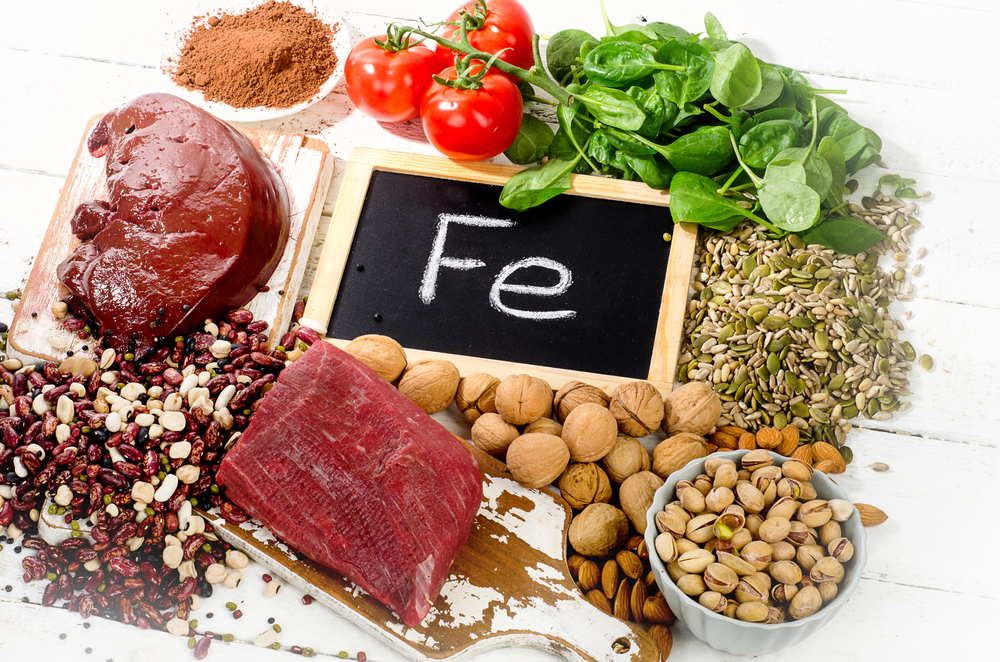
Iron is essential for hemoglobin formation and oxygen transport in the blood. It also plays a role in immune function and support. An iron deficiency is known as anemia, with the primary symptom being fatigue. This fatigue will be particularly pronounced when participating in energy-demanding activities, such as endurance sports. Symptoms of iron-deficiency anemia include fatigue, weakness, pale skin, and shortness of breath. An untreated iron deficiency can also make you more at risk of illness and infections, as well as developing complications that affect the heart and lungs. Foods that are high in iron include:
- Red meat
- poultry
- fish
- lentils
- beans
- fortified cereals
11. Selenium
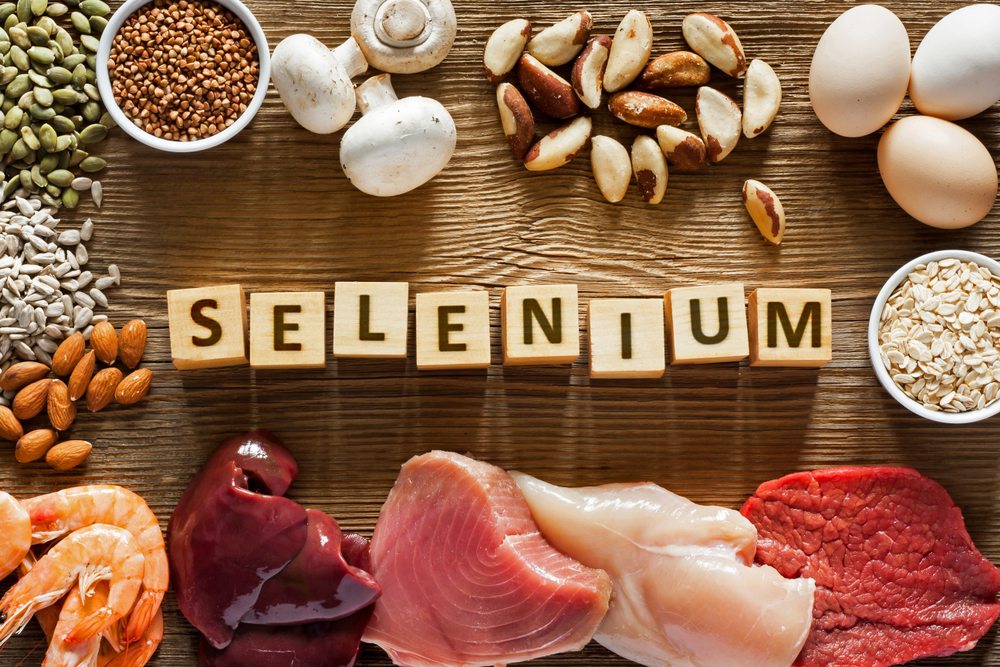
Selenium is an important mineral that many people don’t really know much about. It plays a role in antioxidant defense systems and thyroid hormone metabolism. Deficiency can lead to a variety of problems, including a weakened immune system, thyroid disorders, muscle weakness, cognitive decline, mood disorders such as anxiety and depression, and fertility problems for both men and women. A more severe deficiency can lead to keshan disease, a type of heart disease, and has been associated with certain cancers, heart diseases, and premature death. Foods that are high in selenium include:
- Brazil nuts
- seafood
- meats
- cereals
- eggs
12. Molybdenum
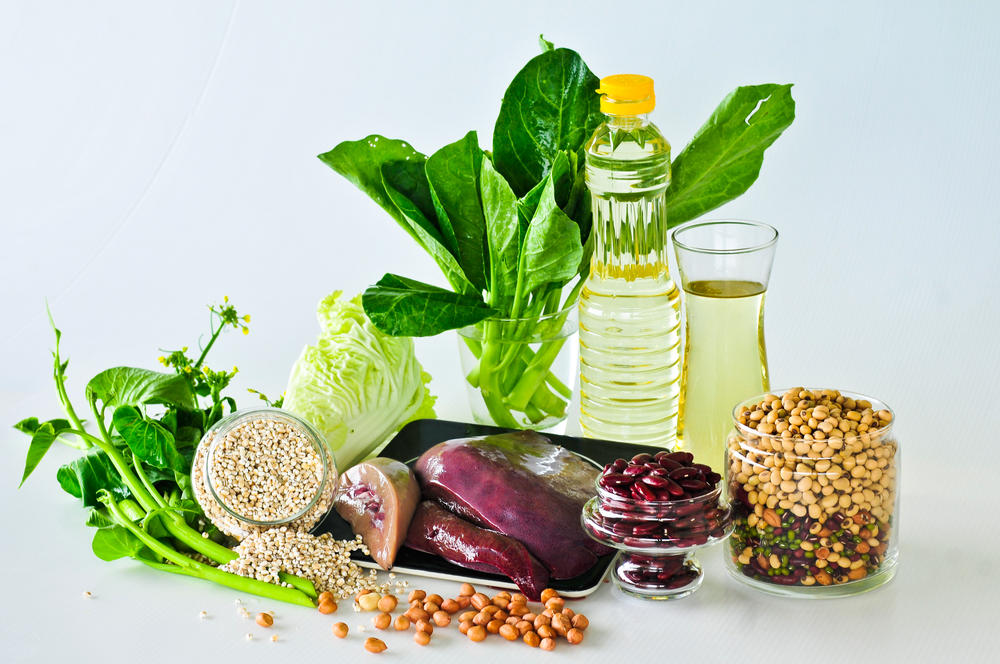
Most of us have never heard of molybdenum, and this is primarily because it is essentially impossible to become deficient in it. Deficiency is really only present in people with a specific genetic disorder called molybdenum cofactor deficiency. Molybdenum functions as a cofactor for enzymes involved in metabolism of sulfur-containing amino acids, transforming toxic sulfites into a less harmful form, sulfates. If you have this genetic disorder, then this deficiency can cause brain dysfunction and seizures, particularly in babies. Food sources include:
- Legumes
- grains
- nuts
- leafy vegetables
13. Phosphorus
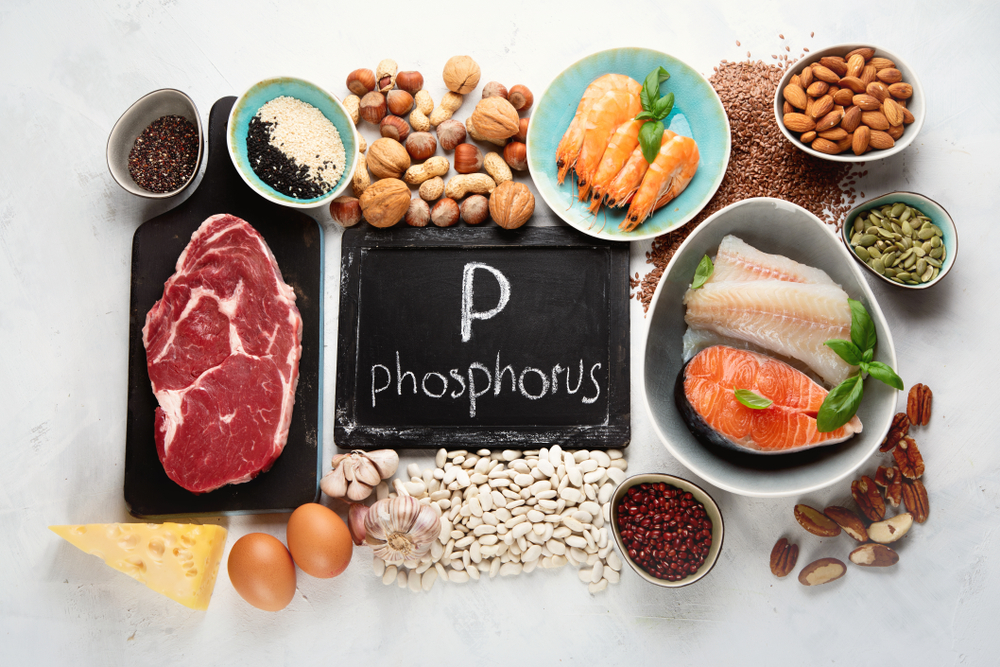
Phosphorus is vital for bone formation, energy storage and transfer (ATP), and cellular function. Deficiency is called hypophosphatemia, and it comes with a variety of symptoms. These include weakness, bone pain, and difficulty breathing. In children, it can lead to a bone disease called rickets. If left untreated, hypophosphatemia can lead to seizures, coma, and even death. Foods high in phosphorus include:
- Meat
- dairy products
- nuts
- legumes
- whole grains
14. Copper
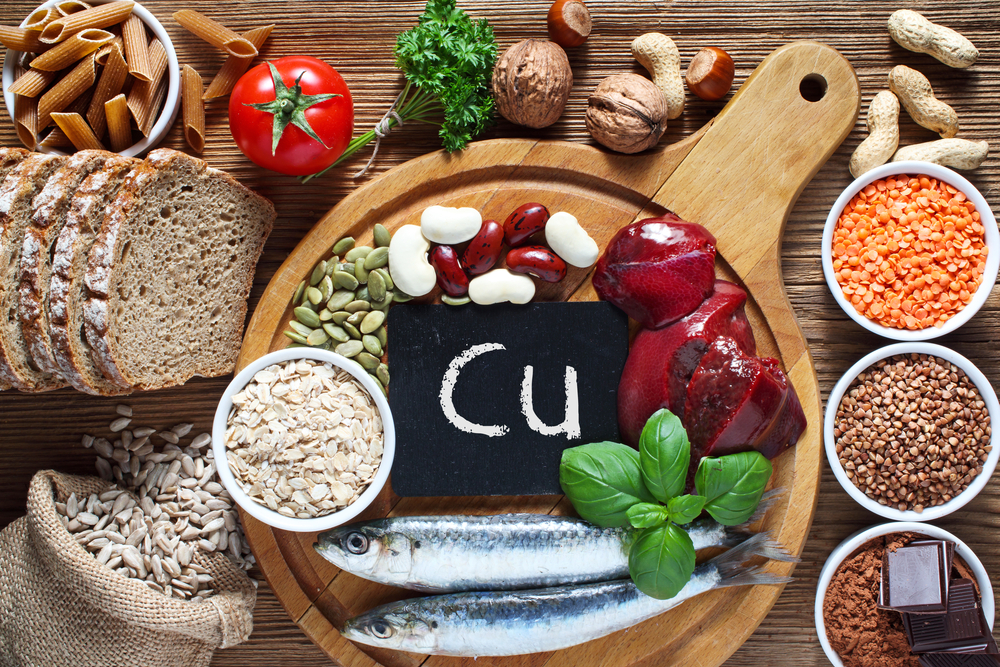
Copper isn’t just a metal we use in our daily lives, it is also an essential mineral. It is important for iron metabolism, formation of connective tissue, and neurological function. Deficiency can lead to anemia, bone abnormalities, and neurological problems. It can also lead to neutropenia, or low white-blood cell count, increasing your risk of fatigue, infections, and illness. Copper deficiency can also affect skin pigmentation and color, cause cardiovascular problems, and muscle weakness. Foods that are high in copper include:
- Shellfish
- organ meats
- nuts
- seeds
- whole grains
A Balanced Diet Is All You Need
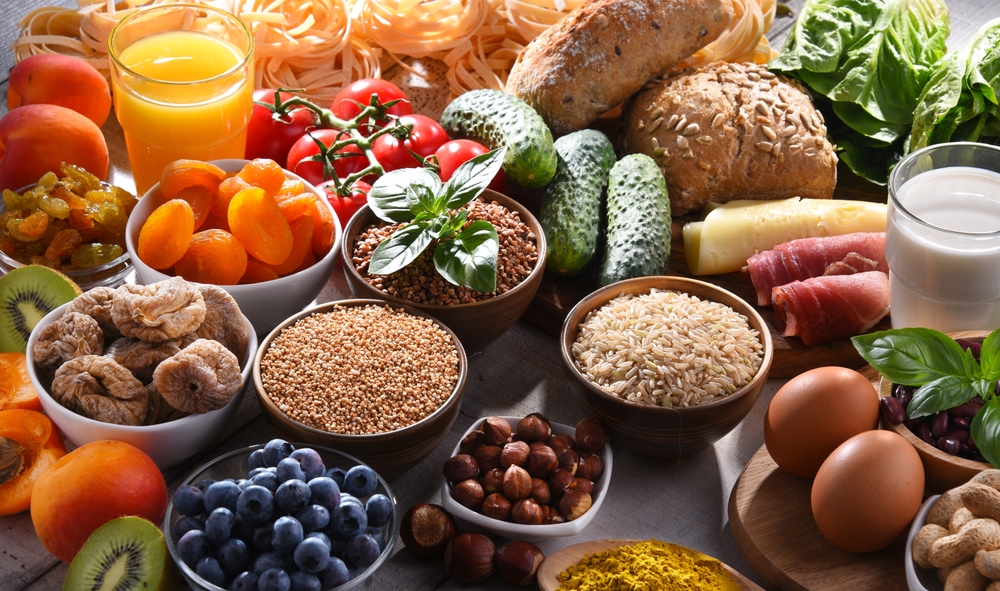
There’s a reason why we’ve chosen to focus on food sources here and have not talked about supplementation. This is because, for most healthy individuals, a well-balanced diet is all you need. This means that you consume enough food for your energy output, and that this food is varied, includes plenty of fruits and vegetables, and is minimal in processed, pre-packaged industrial foods. There are some cases for some individuals where supplementation may be necessary for certain minerals. These, however, should be evaluated by a doctor first.
This is normally done by taking a blood test, and then supplementation is monitored by your doctor using regular blood tests to check your nutrient status. It is not a good idea to just go take over-the-counter supplements of most minerals without first knowing your status, as some of them can reach toxic levels and cause serious health problems. Endurance athletes, vegetarians, and vegans will most likely need to check in with their doctors about their mineral statuses and may need to consider supplementation. Beyond that, focusing on a healthy, balanced diet should easily provide you with all the minerals that you need to thrive.
Disclaimer: This information is not intended to be a substitute for professional medical advice, diagnosis or treatment and is for information only. Always seek the advice of your physician or another qualified health provider with any questions about your medical condition and/or current medication. Do not disregard professional medical advice or delay seeking advice or treatment because of something you have read here.
Read More: 7 Essential Minerals Your Body Needs That Nobody Talks About
